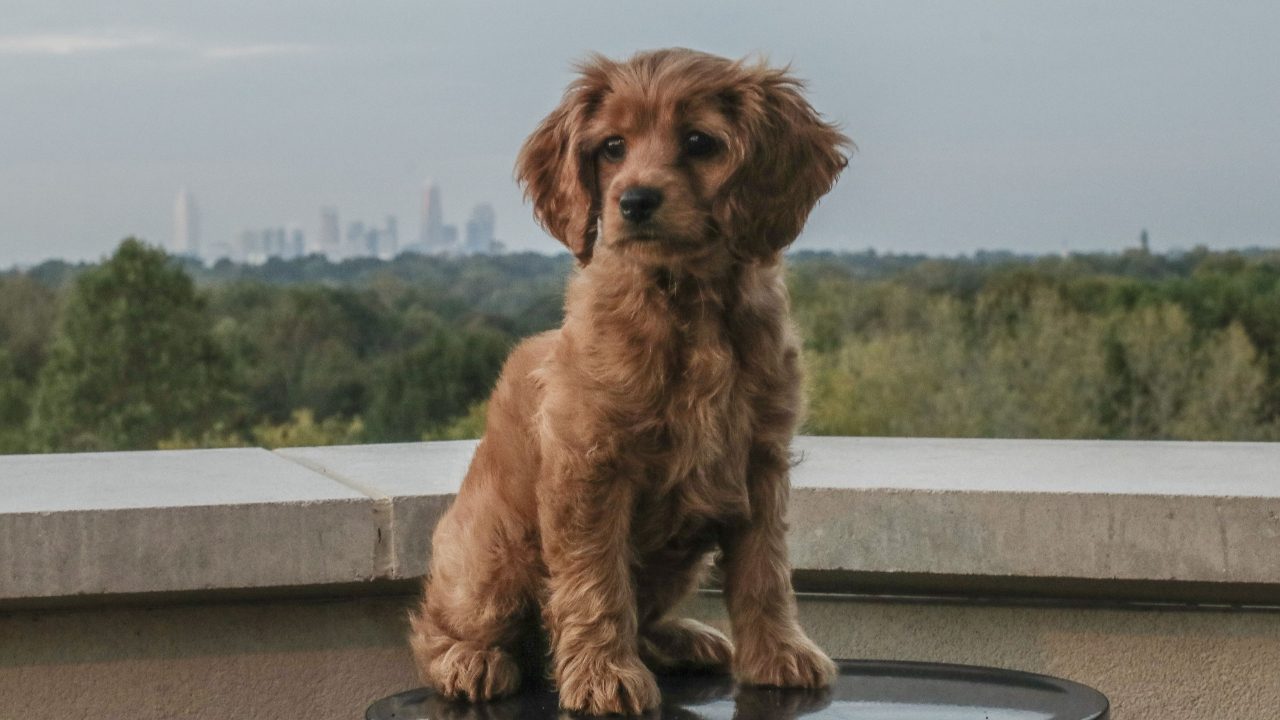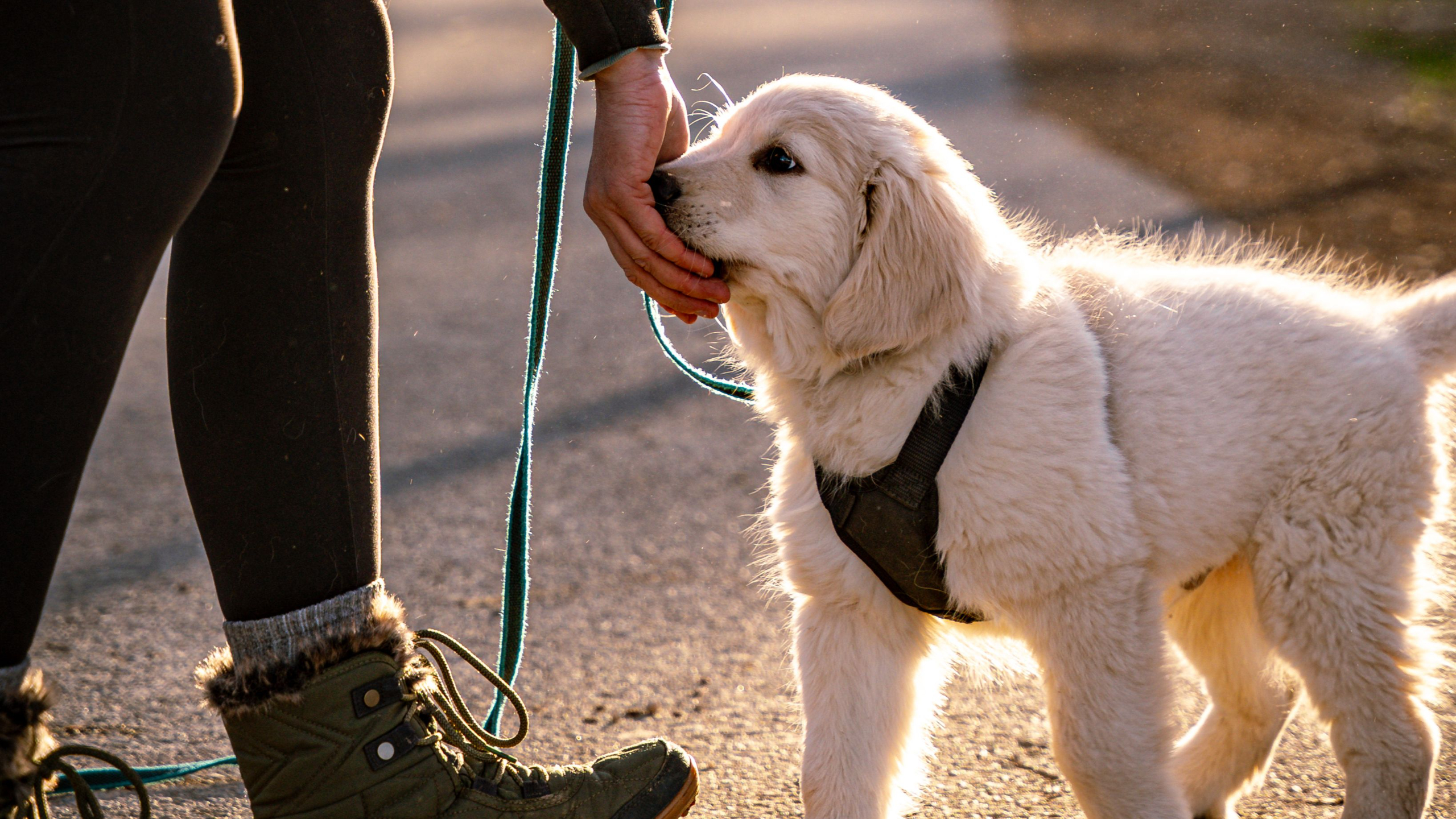How to Potty Train a Puppy (Fast & Effectively)
Jul 15, 2025
Welcoming a new puppy into your home is exciting...but stepping in unexpected puddles? Not so much. Potty training is one of the first and most important things you’ll teach your new furry family member. When done right, the process can be quick, smooth, and stress-free. Here’s how to set your puppy up for success from day one.
Establish a Consistent Schedule
Puppies thrive on structure. A predictable routine helps them learn when it’s time to go potty—and when it’s not. Use this general guide to schedule potty breaks: first thing in the morning, after eating or drinking, after play sessions, after naps, before bedtime, and every 1–2 hours during the day, especially for puppies under 6 months. A helpful tip is to set a timer to stay on track. The more proactive you are, the fewer accidents your puppy will have.
Use a Designated Potty Spot
Always take your puppy to the same potty spot on a leash. The familiar scent and setting will cue them that it’s time to go. Use a consistent phrase like “go potty” and praise them immediately as they finish. Timing is critical, reinforcement must happen while your puppy is actively going, not after returning inside.
Keep Potty Breaks Focused, It's Not Playtime
A common mistake is letting your puppy into the fenced yard off-leash, where they get distracted by play and forget to potty; only to have an accident inside minutes later. Keep potty breaks short and purposeful. Using a leash (ideally a retractable one) allows your puppy some space to sniff and relieve themselves while maintaining structure. If your puppy doesn’t go within a few minutes, take them back inside and place them in their crate for 15 to 30 minutes, then try again. Most puppies won’t soil where they sleep, so this method teaches them that potty time happens outside. Once they go successfully, reward them with supervised free time indoors.
Supervise Like They’re a Toddler
Until your puppy is fully trained, assume that if they’re not being watched, they might be sneaking off to potty. Use tools like a leash tethered to you or a nearby object, baby gates or playpens, and a crate. Supervision isn’t forever, but it’s essential early on to prevent accidents and reinforce the right habits.
Make the Crate Your Secret Weapon
A properly sized crate is one of the most effective potty training tools. Dogs naturally avoid soiling where they sleep, so crates help develop bladder control. Choose a crate that’s big enough for your puppy to stand, turn, and lie down, but not large enough to potty in one corner and sleep in another. Use the crate for naps, overnight sleeping, and short periods when you can’t actively supervise. Always take your puppy out to potty immediately after crate time.
Reward Promptly and Generously
Celebrate every success with enthusiastic praise and high-value treats. Helping your puppy associate going potty outside with good things will reinforce the behavior. Keep treats near the designated potty area or in a treat pouch that you can grab on your way out the door so you can reward immediately after they finish.
Handle Accidents Calmly
Even with the best training plan, accidents happen. Avoid scolding or punishment, as it can confuse your puppy and delay learning. Instead, clean thoroughly with an enzymatic cleaner to remove lingering scents. Then reflect on what might have gone wrong - did you miss a cue or wait too long between breaks? Learning from these moments will help you improve your timing and consistency.
Learn Your Puppy’s Cues
Many puppies show subtle signs before they need to go, such as sniffing, circling, whining, or wandering away in search of privacy. Learn to recognize your puppy’s specific cues so you can act quickly and prevent accidents.
Stay Consistent and Patient
Quick results come from clear communication and daily consistency. Stick to your routine, reward successes, supervise closely, and remain patient. Most puppies can be well on their way to being fully potty trained within a few weeks when these strategies are used consistently.
Potty training doesn’t have to be a frustrating experience. With a structured schedule, the right tools, and a proactive approach, your puppy can learn quickly and with confidence. If you're looking for more support during your puppy’s early months, the team at KeenDog is here to help. From personalized coaching to structured puppy programs, we’re committed to setting you and your dog up for lifelong success.



